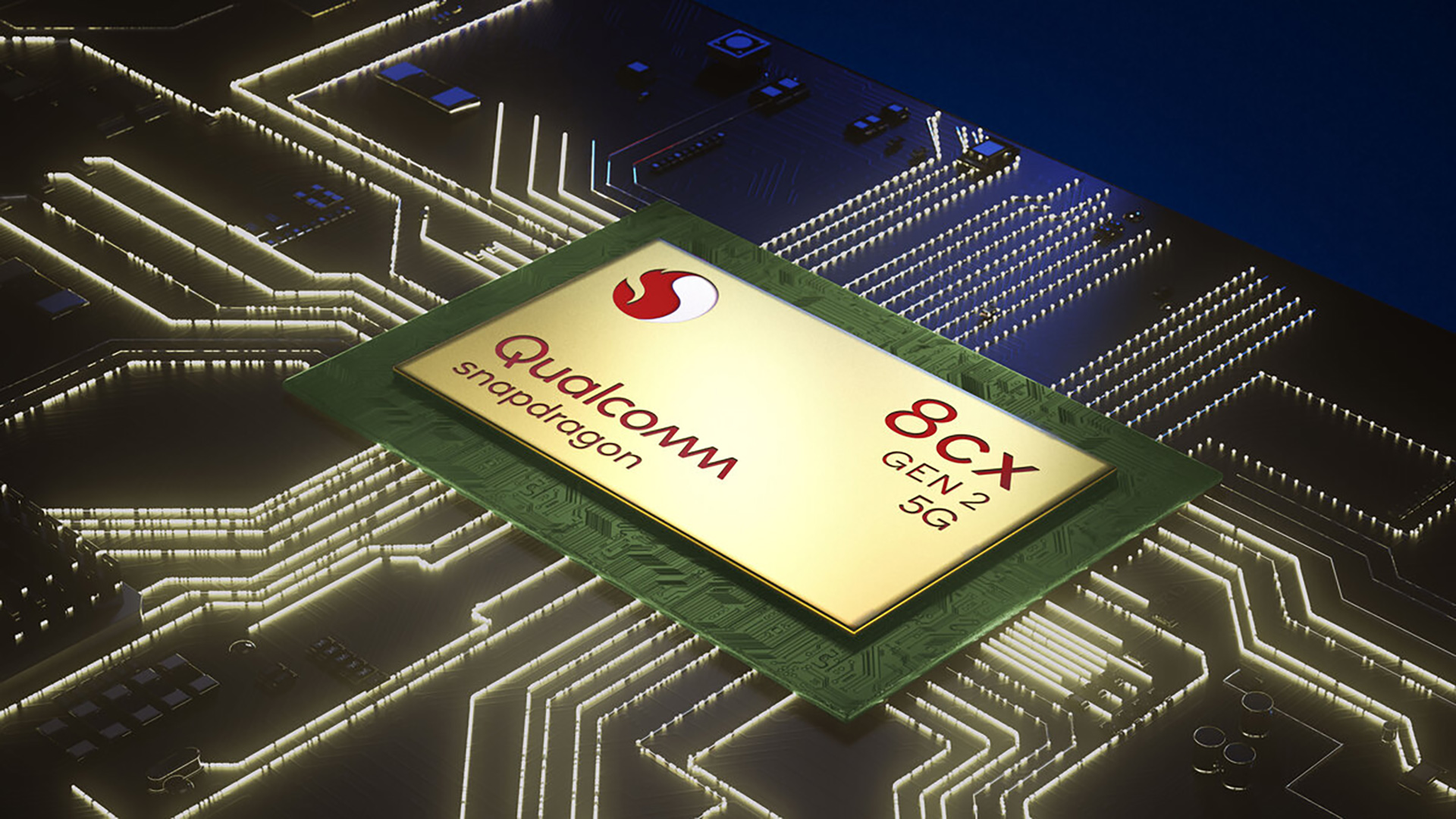Qualcomm Snapdragon 8cx Gen 2 5G for laptops: Everything you need to know
Can Qualcomm's latest compete against Apple Silicon?

Sign up to receive The Snapshot, a free special dispatch from Laptop Mag, in your inbox.
You are now subscribed
Your newsletter sign-up was successful
At the end of 2018 Qualcomm, the world's largest supplier of smartphone chips, announced a new Snapdragon 8cx chip that was the fastest it had ever created. The chip was designed to power the new generation of always-on and always-connected laptops.
Today Qualcomm has announced the second generation, Snapdragon 8cx Gen 2 5G, which brings with it a number of small, but critical advancements over the original that should help to deliver even better performance and connectivity while still offering up to 25 hours of battery life.
- Best business laptops in 2020
- IFA 2020: Intel 11th Gen, new laptops, 5G, smartphones, headphones and more
- Best back-to-school laptop deals 2020: Save at Apple, Best Buy and more
We will certainly put the Snapdragon 8cx Gen 2 5G through our rigorous testing and let you know how it handles both in the lab and in real-world usage once it launches in laptops like the Acer Spin 7 later this year. But for now, here's a look at everything you need to know about the refreshed mobile powerhouse from Qualcomm.
Connectivity
Naturally, connectivity is a top-of-mind concern for the Snapdragon 8cx Gen 2 5G. Qualcomm snuck that 5G right into the name this time despite its presence in the original just to be sure you wouldn't forget about it.
Like most of the flagship smartphones of 2020 and its predecessor, the Snapdragon 8cx Gen 2 5G features the Snapdragon X55 5G modem. That allows it to deliver both mmWave and sub-6 GHz along with the Snapdragon X24 LTE model to ensure that you are getting the best wireless speeds wherever you are.
Notably, the 8cx Gen 2 adds Wi-Fi 6 to the package, something that the original lacked. Although 5G is the main focus for the kind of thin-and-light laptops that use the 8cx Gen 2, there's no reason not to take advantage of a great wi-fi router if there's one on hand.
Bluetooth 5.1 is also now supported which primarily brings with it faster connection speeds and less power consumption from Bluetooth devices, which I'm sure no one will complain about.
Sign up to receive The Snapshot, a free special dispatch from Laptop Mag, in your inbox.
Performance
Qualcomm did not offer much in the way of either benchmarks or comparisons against the original Snapdragon 8cx. It's disappointing as this was one of our reviewer's concerns with laptops using that chipset like the Lenovo Flex 5G. The Snapdragon 8cx Gen 2 5G relies on the same 7nm Qualcomm Kryo 495 CPU, but does have an improved Hexagon 690 processor that could offer a boost for some activities.
Qualcomm is boasting of "50% greater system-wide performance and battery life versus competing solutions." And while it's believable on battery life, given the lack of specific enhancements related to the performance of the Snapdragon 8cx Gen 2 5G we'll need to see it to believe it on that front.
Battery life
Nothing has actually changed when it comes to the battery life claims for the Snapdragon 8cx Gen 2 5G, it's the same 25 hours as its predecessor.
The Lenovo Flex 5G didn't make it to 25 hours in our traditional rundown test that involves continuous web surfing with the display at 150 nits. However, it does hold the record for the longest-lasting laptop at 17 hours and 28 minutes and that should be enough to get you through even the worst workday.
Maintaining the status quo on battery life for the Snapdragon 8cx Gen 2 5G will be just fine, particularly if it sees some of the claimed performance enhancements.
The competition
This refresh arrives at an interesting time with the MacBook with Apple Silicon rumored to be arriving within the next couple of months for Apple. That's right around when we expect to see laptops with the Snapdragon 8cx Gen 2 5G shipping.
While Apple hasn't confirmed anything regarding 4G or 5G connectivity in its forthcoming Apple Silicon powered laptops, it certainly isn't out of the realm of possibility.
Battery life claims are pure rumor for Apple Silicon as well, but they do range as high as 20 hours, putting them on a nearly even playing field. Where Apple Silicon is likely to see a serious advantage is performance which recent benchmarks for the Developer Transition Kit show as roughly on par with a MacBook Pro 13-inch (2020).
Apple Silicon has one final advantage in Apple's control over the App Store, this could result in a much smoother transition for users than we've seen for ARM-based Windows 10 laptops that still have quite a few compatibility problems with even widely used apps like Dropbox.
Sean Riley has been covering tech professionally for over a decade now. Most of that time was as a freelancer covering varied topics including phones, wearables, tablets, smart home devices, laptops, AR, VR, mobile payments, fintech, and more. Sean is the resident mobile expert at Laptop Mag, specializing in phones and wearables, you'll find plenty of news, reviews, how-to, and opinion pieces on these subjects from him here. But Laptop Mag has also proven a perfect fit for that broad range of interests with reviews and news on the latest laptops, VR games, and computer accessories along with coverage on everything from NFTs to cybersecurity and more.

